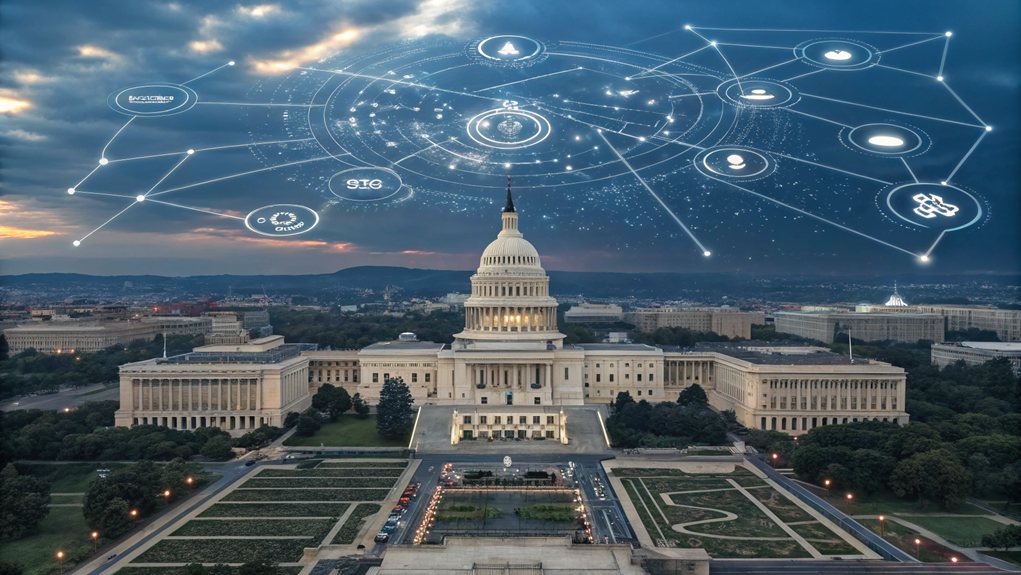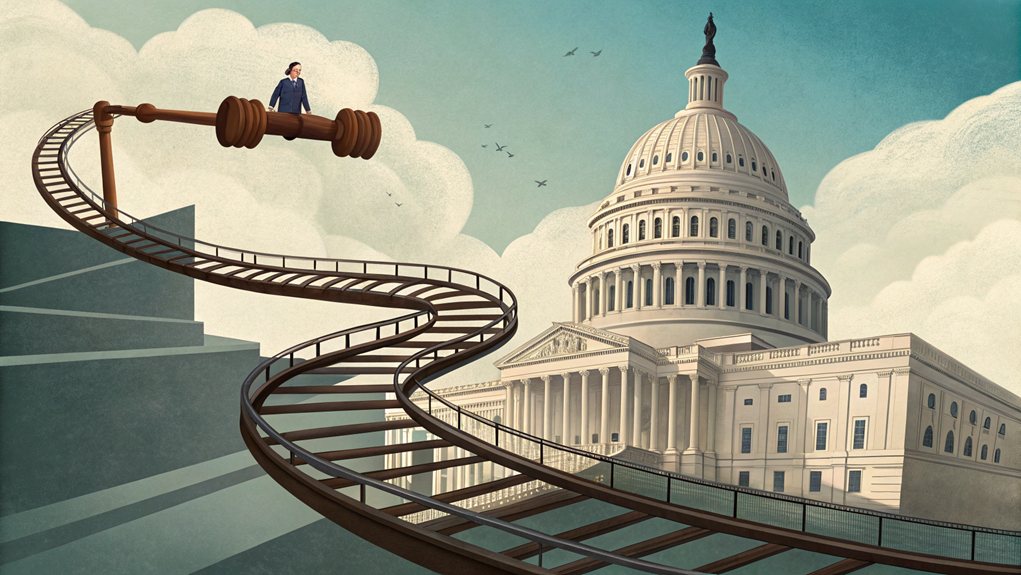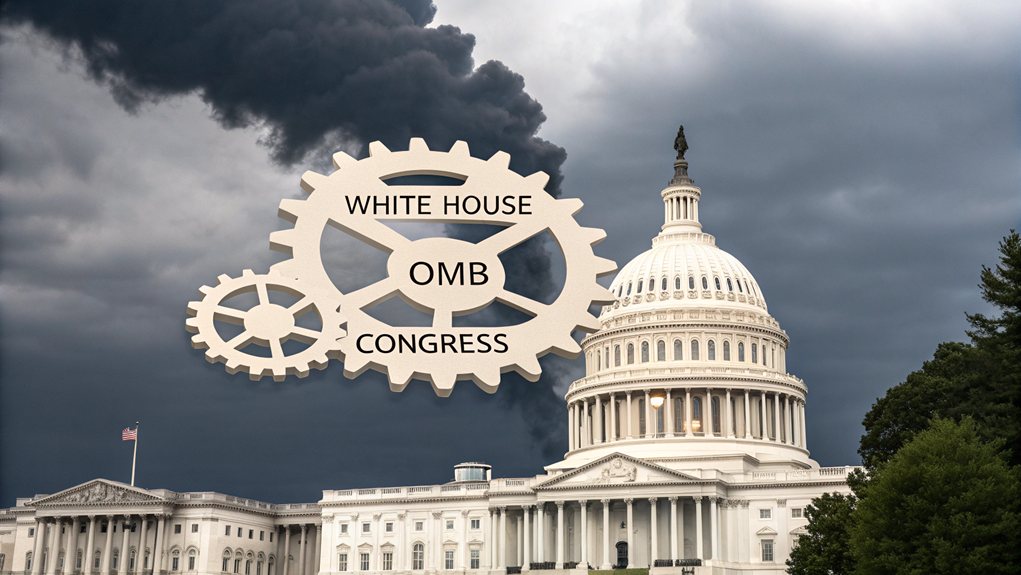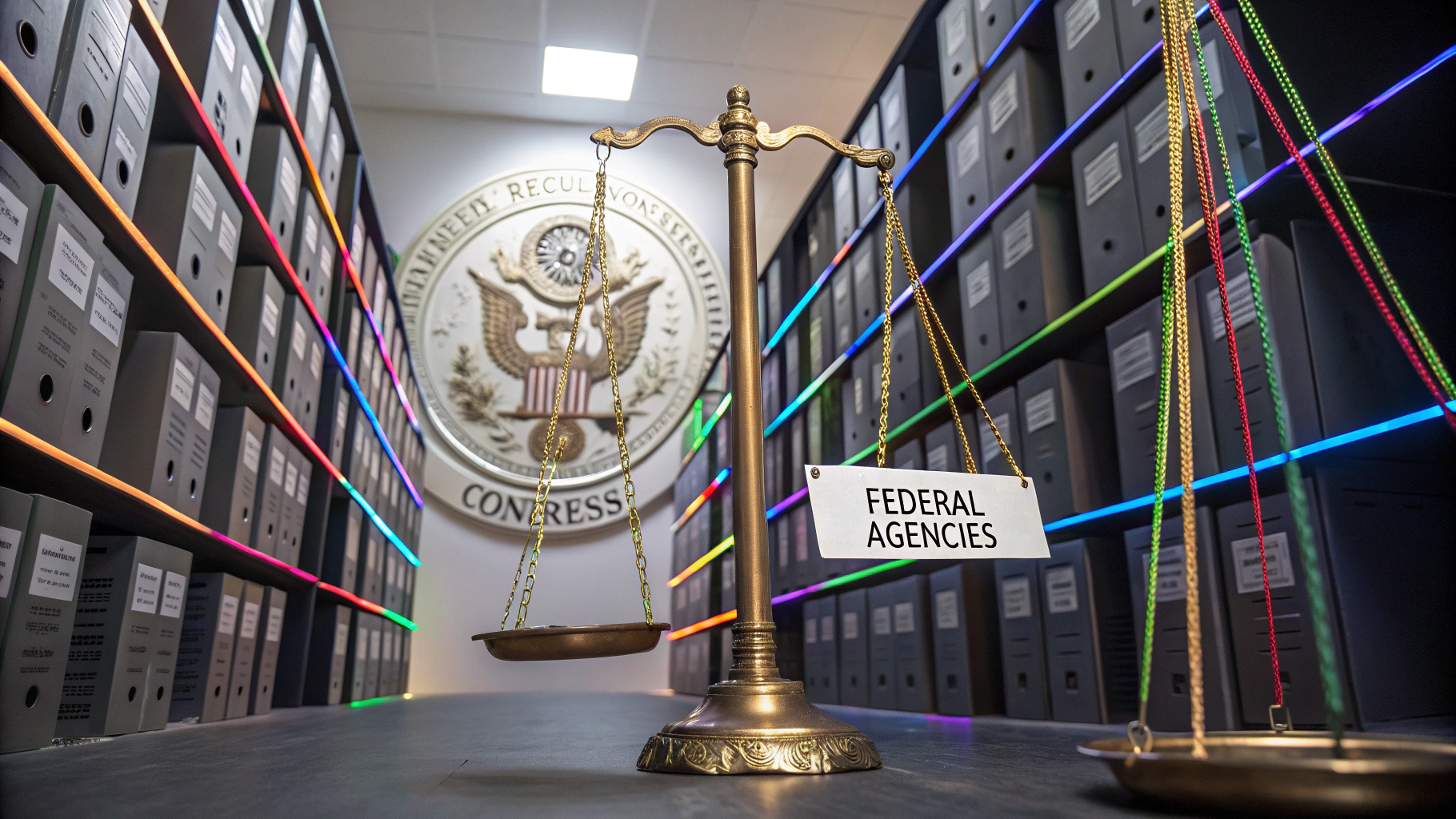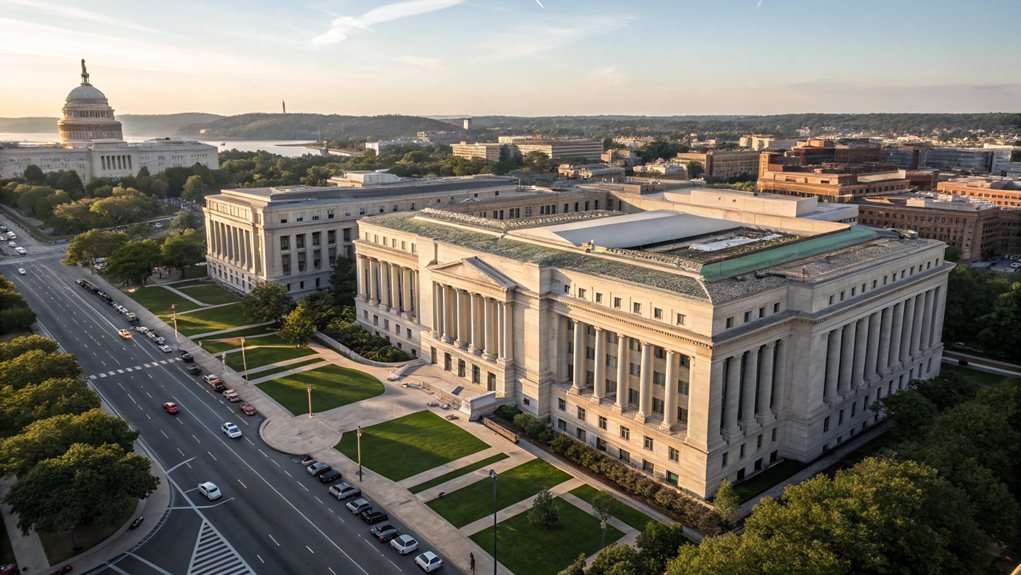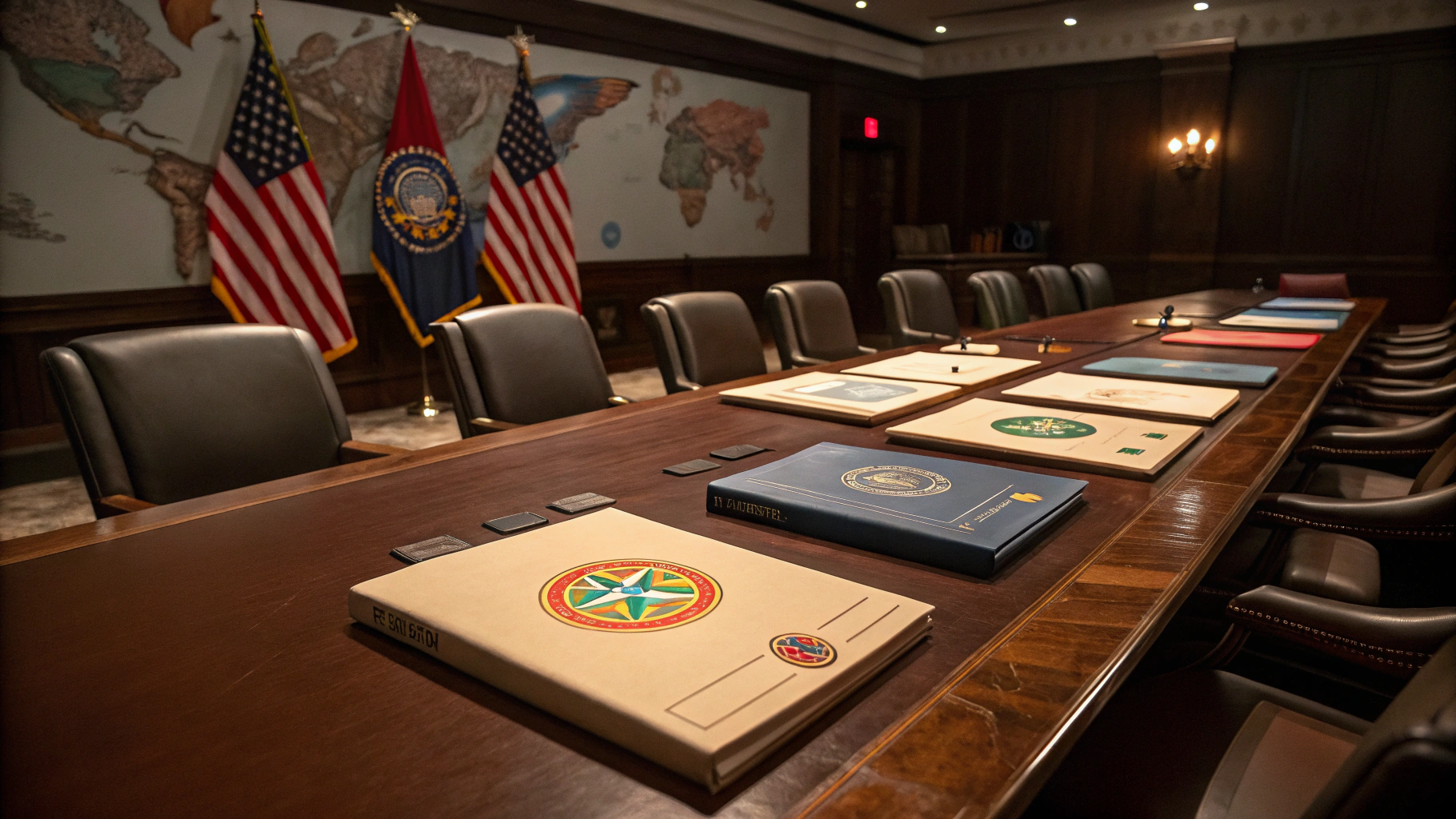The Intelligence Community (IC) is like a behind-the-scenes superhero squad, made up of 18 agencies, with the CIA and NSA doing the heavy lifting. They report to the Director of National Intelligence, who basically runs the show. Their mission? To keep the U.S. safe while informing policy without getting too involved in politics. They collect and analyze intel, balance privacy with security, and work with various groups. Sounds complicated, right? There's more to uncover about their secrets.
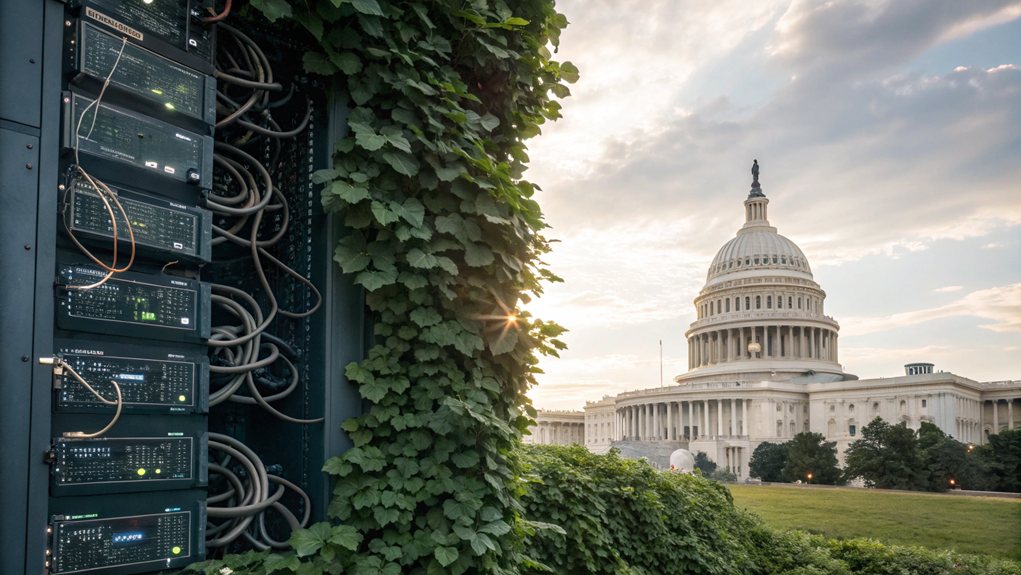
The Intelligence Community (IC) operates like a well-oiled machine, though it often feels more like a chaotic family reunion. With 18 different agencies and offices, including the CIA, NSA, and DIA, it's a wonder how they manage to keep it all together. The Office of the Director of National Intelligence (ODNI) oversees this sprawling network, with the Director of National Intelligence (DNI) at the helm. The DNI is the one crafting the National Intelligence Program budget and setting objectives for the IC. Talk about a juggling act!
At its core, the IC is all about national security. They're the silent sentinels, informing U.S. government policy without stepping into the murky waters of actually making it. They take a hard look at emerging technologies—AI, quantum computing, you name it—assessing what adversaries might be cooking up. Their intelligence is fed to the big shots, like the President and Congress, ensuring that decisions are based on something more substantial than gut feelings. The IC employs tens of thousands of analysts who contribute diverse expertise to address various national security challenges.
Now, let's talk about the intelligence cycle. It's a fancy term for a straightforward process: identify needs, plan, collect, analyze, produce, and then share. Sounds simple, right? But here's the kicker—raw intelligence needs some serious polishing before it becomes useful. That means translating and organizing data. It's like turning a messy room into a neat and tidy space, only the stakes are much higher. The intelligence activities encompass collection, analysis, counterintelligence, and covert operations, ensuring comprehensive support for U.S. foreign policy.
Oversight? Oh, it's there. The IC is monitored by both the executive and legislative branches. The President's Intelligence Advisory Board and the Intelligence Oversight Board keep an eye on things. They have to balance gathering intelligence with the pesky business of respecting privacy.
Collaboration is key. The IC doesn't work alone; it partners with local and international groups, private sectors, and various committees. It's all hands on deck when it comes to national security.
In the end, it's a complex, often chaotic, but essential operation that keeps the nation safe.
Frequently Asked Questions
What Is the History of the Intelligence Community in the U.S.?
The history of the U.S. intelligence community is a wild ride. It kicked off in 1917 with MI-8, the original decoder squad.
Fast forward to WWII, and the OSS took the spotlight, only to be dismantled post-war.
Then came the CIA, born in 1947, trying to keep things organized—good luck with that!
Now, with 18 different agencies, it's like herding cats.
Oversight? Sure, Congress is watching—sometimes.
Welcome to the intelligence circus!
How Is Data Collected by the Intelligence Community?
Data collection by the intelligence community? Oh, it's a wild ride!
They plunge into open-source intelligence—think social media and news. Human sources? Yep, informants spill the beans.
Then there's tech magic: signals and satellite data. Fancy methods like web scraping and data mining sift through mountains of info.
But wait, legal stuff matters too! Ethics, privacy, and source validation keep it somewhat in check.
It's a messy but necessary operation.
What Are the Legal Limitations on Intelligence Operations?
Legal limitations on intelligence operations? Oh, they're there, alright. The Constitution starts it off, especially Article II.
Then, laws like FISA come in to keep things in check. Agencies can't just snoop on U.S. citizens—no domestic law enforcement for them. They've got to stick to foreign targets and follow strict rules on sharing info.
Oversight? You bet. Congress, the Executive, and even courts are keeping an eye out, ensuring the spies don't run amok.
How Does the Intelligence Community Collaborate With Foreign Agencies?
The intelligence community plays nice with foreign agencies to tackle shared threats. Think terrorism and cybercrime. They swap info that's often locked away, which is handy.
Plus, building up partner nations? That's a win-win. The U.S. boosts its global status while helping others get their act together. It's like a buddy system but with spies.
And yes, the "Five Eyes" alliance? They're the VIPs of international intelligence hangouts.
What Are the Career Opportunities Within the Intelligence Community?
The intelligence community is a treasure trove of career opportunities. Analysts immerse themselves in data, while GEOINT specialists obsess over imagery.
Don't forget about the cybersecurity pros, defending against digital villains. Business roles exist too—accountants and HR specialists keep the gears turning.
And then, there's STEM—think mathematicians and physicists cooking up tech magic.
